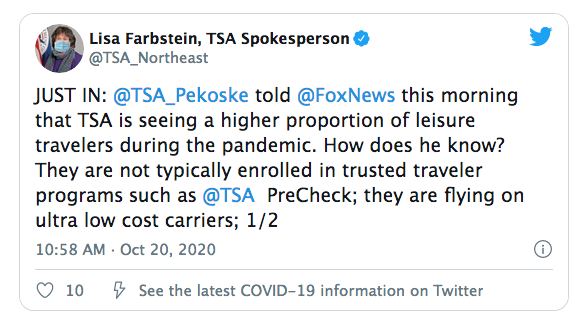So as we look ahead to the colder winter months and think about air travel's impact on the economy, the risk might be more about limitations on future improvement than backsliding.
The TSA data suggests we can now get modest improvements in flight demand even while seeing spikes in virus cases. Hotel data gathered by industry researcher STR showed that hotel occupancy last week reached 50% for only the second time since the onset of the pandemic, suggesting hotel demand is stablilizing at depressed levels as well.
Perhaps some leisure travelers will become more willing to take important trips during the winter months if they grow more comfortable with the health risk of flying. TSA Administrator David Pekoske said Tuesday that the industry is seeing a rise in travel to vacation destinations, especially across the Sunbelt states. But until there's a vaccine, it's unlikely that we see business travel, public events or widespread indoor dining — key reasons for flying for many — come back in a significant way.
It'll be important to track the real-time data to see if things change, but for now it seems more likely that we'll see an economic recovery held back over the next few months by a rebound of the virus, rather than a double-dip recession.

Conor Sen is a Bloomberg Opinion columnist. He has been a contributor to the Atlantic and Business Insider.








